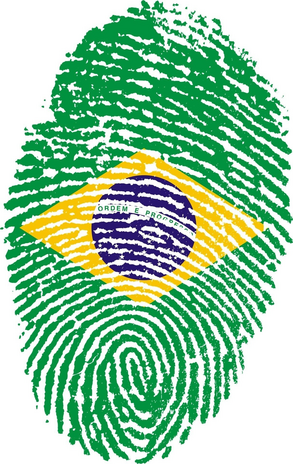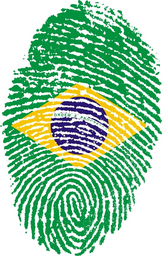“Our souls as well as our bodies are composed of individual elements which were all already present in the ranks of our ancestors. The “newness” in the individual psyche is an endlessly varied recombination of age-old components.” These are famous words from Swiss psychiatrist and psychoanalyst Carl Jung from his books titled Memories, Dreams, Reflections published in 1961. This quote teaches us about the human experience of life in general, but it is especially applicable in the realm of creative mediums. Music has been in existence for over 35,000 years; it is impossible for every component of a song to be completely new and entirely unheard. Because of this, musicians are borrowers. Their true artistic capabilities are revealed when they are able to take “age-old components” combined with their own vision to create a sound exuding “newness.” There are countless pioneers in music, each of whom has their own uniqueness and ingenuity when it comes to their sound, but I will be focusing on the development of the mangue beat in Brazil due to the musical works of Chico Science and Nação Zumbi.
Francisco de Assis França, better known by his stage name, Chico Science, was born in Olinda in the Brazilian state of Pernambuco on March 13, 1966. This area can be found in the Northeast region of the country atop a low hill on the Atlantic coast. Growing up in Olinda, he was relatively close to the ocean and would hunt crabs in the shrubs and trees of the swamps to make money. These wetlands often referred to as “mangue” is where Chico Science actually named his beat because it paid homage to his childhood and the people who inspired his music. According to the article, “IN A NUTSHELL: MANGUE BEAT” written by Elois Aquino, Francisco de Assis França announced to his friends in 1992, in the Bar de Dona Edna, in Recife, Pernambuco, Brazil that he had “…mixed a hip-hop beat with a maracatu groove and it turned out awesome.” That is the night he gave his creation a name: mangue. Shortly after this, he started his career in Chico Science and called his band Nação Zumbi. They quickly gained popularity in their region and began playing in the Southeastern part of Brazil. Following this, they were invited to the Brazilian MTV Music Awards and offered recording invitations from multiple recording companies before they eventually signed with Sony Music. During his short time as a performer, his band produced two albums — Da Lama Ao Caos in 1994 and Afrociberdellia in 1996, both of which became the most influential albums in Brazilian pop music in the last 30 years. Their music was featured in successful soap operas, they played in music festivals all around the world, and even collaborated with artists like Gilberto Gil. Their success did not dissipate, however, Francisco de Assis França did pass away on February 2, 1997, at the age of 30 due to a car accident. The lead drummer of his band, Toca Ogam, took on the responsibility of lead vocalist after Chico’s passing.
Now, the mangue movement was not fueled by fashion, slang, and visual art alone. It was the sound that Chico Science and Nação Zumbi were able to create by intermingling other genres with the traditional musical aspects of regional Brazilian music, which is how the mangue beat is characterized today. The music produced by Chico Science and Nação Zumbi is best described as a combination of ragamuffin, which is a type of reggae rap with digitized backing instrumentation, hip-hop, funk, embolada, which is a slurred, machine-guns style of traditional singing in Brazil, and maracatu, another traditional music form in Brazil with a focus on complicated percussion beats. This mish-mash created a sound that is unique to Chico Science. It is appreciated by so many because you can actually hear the distinct components of all the different genres. Including so many contrasting genres in your music establishes the safety net that there is always at least one sound people feel attached to and can appreciate; it is a guaranteed connector. There is familiarity and comfort in their music, but also something new, exciting, and compelling. The birth of mangue music set off a cultural revival of tradition in Brazil, while also encouraging the incorporation and appreciation of modern-day musical elements, like rap. This combination of old and new made it more palatable for people all over the world. People wanted to learn about Brazilian culture, especially the music, and the Brazilian people felt united. The mangue movement also had an impact socially and politically, advocating for exposure involving the Afro-Brazilian population and their countless contributions, more inclusion for marginalized groups, as well as ecological renewal. Meringue brought whimsy and fun and the promise of an improved world, which also contributed to its popularity. It was a necessary light in a dark time.
Chico Science did not live long enough to see the entirety of his music’s impact on Brazilian music, the mangue movement, and music in a global sense, but his legacy lives on in the mangue beat, as well as his band. His music inspired changes in the artistic and social culture of Brazil, as well as soothed tensions amidst all the violence in the region in the 90s due to its refreshing sound. Nação Zumbi continues to perform and is loved by so many today, honoring the visions Chico Science had for his music.
Works Cited:
Aquino, Eloisa. “In a Nutshell: Mangue Beat.” Sounds and Colours, 20 Aug. 2014, soundsandcolours.com/articles/brazil/in-a-nutshell-mangue-beat-936/.
“Chico Science Biography, Songs, & Albums.” AllMusic, www.allmusic.com/artist/chico-science-mn0000111304/biography.
Says, Mark, et al. “Blog.” Austin Kleon, 10 Feb. 2010, austinkleon.com/2010/02/10/25-quotes-to-help-you-steal-like-an-artist/.


